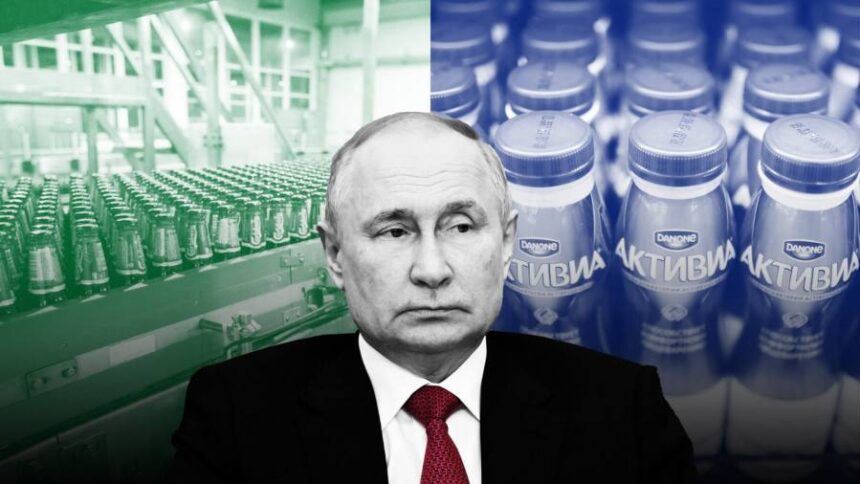Receive free Baltika Breweries JSC updates
We’ll send you a myFT Daily Digest email rounding up the latest Baltika Breweries JSC news every morning.
Carlsberg chief executive Cees ’t Hart said the brewer was “shocked” at the seizure of its Russian subsidiary, Baltika Breweries, by the Kremlin last month, but was still hoping to achieve a disposal of the business.
“We’re assessing the situation and the legal consequences of this highly unexpected move and will seek to protect our assets and the value of the business,” he said in a trading update on Wednesday covering the first six months of the year.
The brewer said it “still considers it probable that it can achieve a disposal of the business, though the conditions are currently very uncertain”. The seizure could impact “parts of the continuing business and structures outside Russia”, it added.
Baltika Breweries was placed under Russian state control in July, a month after Carlsberg announced it had found a buyer for the business. Taimuraz Bolloev, a longtime friend of Putin who previously ran Baltika in the 1990s, has been installed as Baltika’s director.
In Wednesday’s update Carlsberg said it retained title to the shares in Baltika Breweries, but no longer had any control or influence over the company.
The Danish brewer said the net loss from Russian operations put up for sale amounted to DKr404mn ($59mn) and that Baltika Breweries would be deconsolidated from July. It added it was “unclear what direct and indirect implications the loss of control will have on the conditional sale”.
Carlsberg had previously warned that it would suffer a $1.4bn writedown from selling off the unit, and had not named the buyer.
On Tuesday the brewer upgraded its forecast profit ahead of reporting its half-year earnings, and announced a DKr1bn ($147mn) share buyback programme following better than expected profit growth.
Operating profit rose 5.2 per cent in the first six months of the year, far ahead of analyst expectations of 0.5 per cent, and setting the brewer aside from rivals reporting disappointing interim sales. Carlsberg said this was a result of strong growth in Asia, where sales volumes rose 4.8 per cent, helping to offset higher input and energy costs and salaries globally.
Like-for-like revenues grew 11.2 per cent, thanks to the recovery of bar and pub trade, the growth of its premium brands in Asia and central and eastern Europe, and price increases across most markets.
The brewer, which also counts Tuborg, Kronenbourg and Somersby cider among its brands, said volumes rose 0.8 per cent, slightly below analyst forecasts of 1.2 per cent growth. But the positive sales volumes contrasted with declines at competitors Heineken and AB InBev.








